Sum Lok-kei sometimes thinks back to a one-day music festival he organised almost eight years ago, when he and long-time friend Jason Cheung played alongside a dozen alternative bands from Hong Kong and China in a marathon performance of hybrid indie sounds.
The event took place in a now-closed venue called Focal Fair in the heart of Causeway Bay – one of the world’s most expensive shopping areas – and ran from midday past midnight, Jason recalls, adding that Lok was “rather crazy” to plan such an event. “It was a fun one,” Lok says in Cantonese. “And we have been wondering when we could do something like that again.”
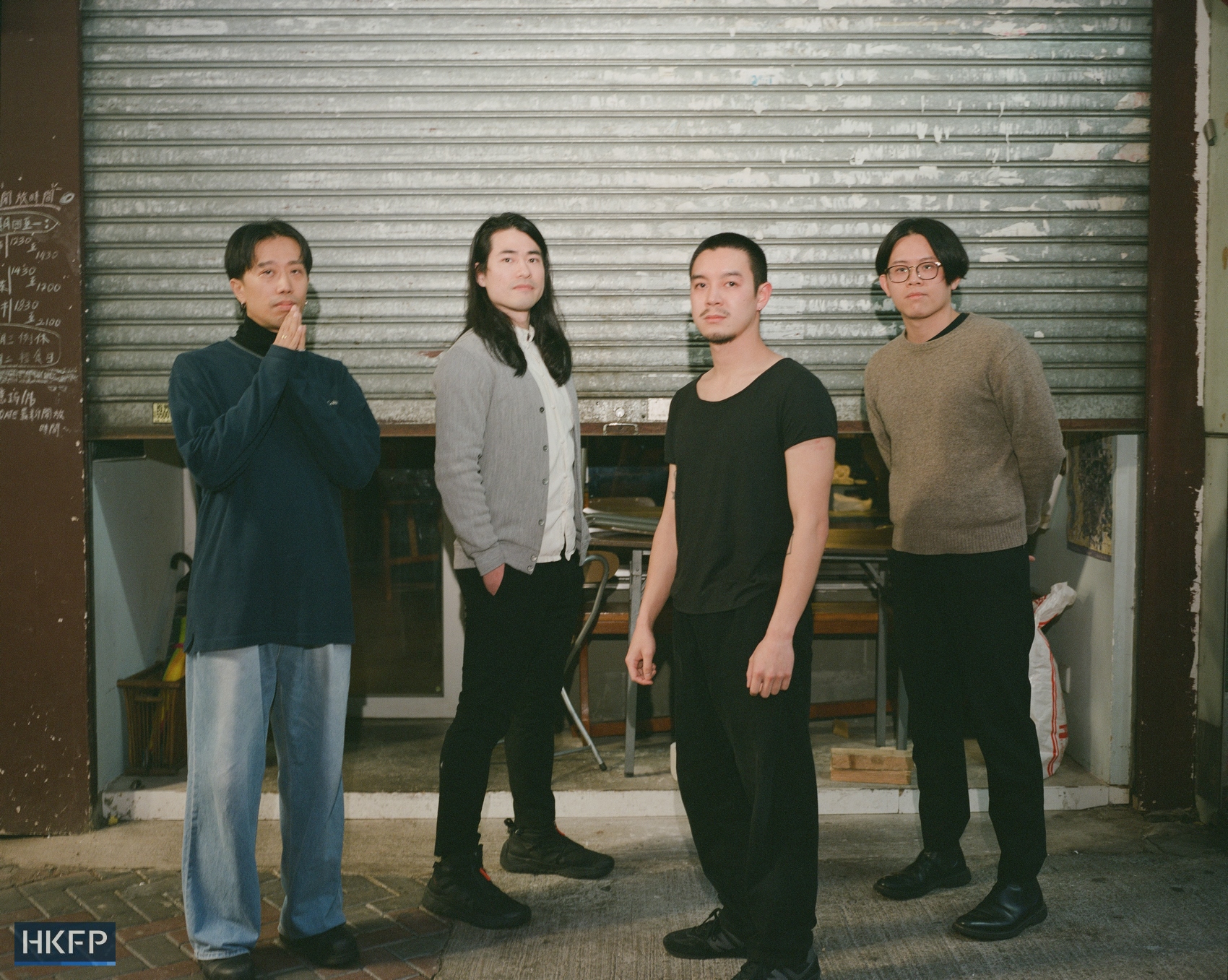
Leung Wing-lai’s most memorable event, however, was a farewell gig for the third-generation version of legendary underground music venue Hidden Agenda. Leung pointed to a mimeograph poster reading “Keep on growing” in Chinese from the 2016 occasion. Hidden Agenda survived multiple locale changes and government crackdowns but eventually shut down in the wake of the Covid-19 outbreak in 2020.
“Many bands in Hong Kong just go missing after their first record,” Jason agrees. “After seeing a few of their shows and starting to like them, they left the scene. Some made recordings but never released them. It felt deeply amiss.”
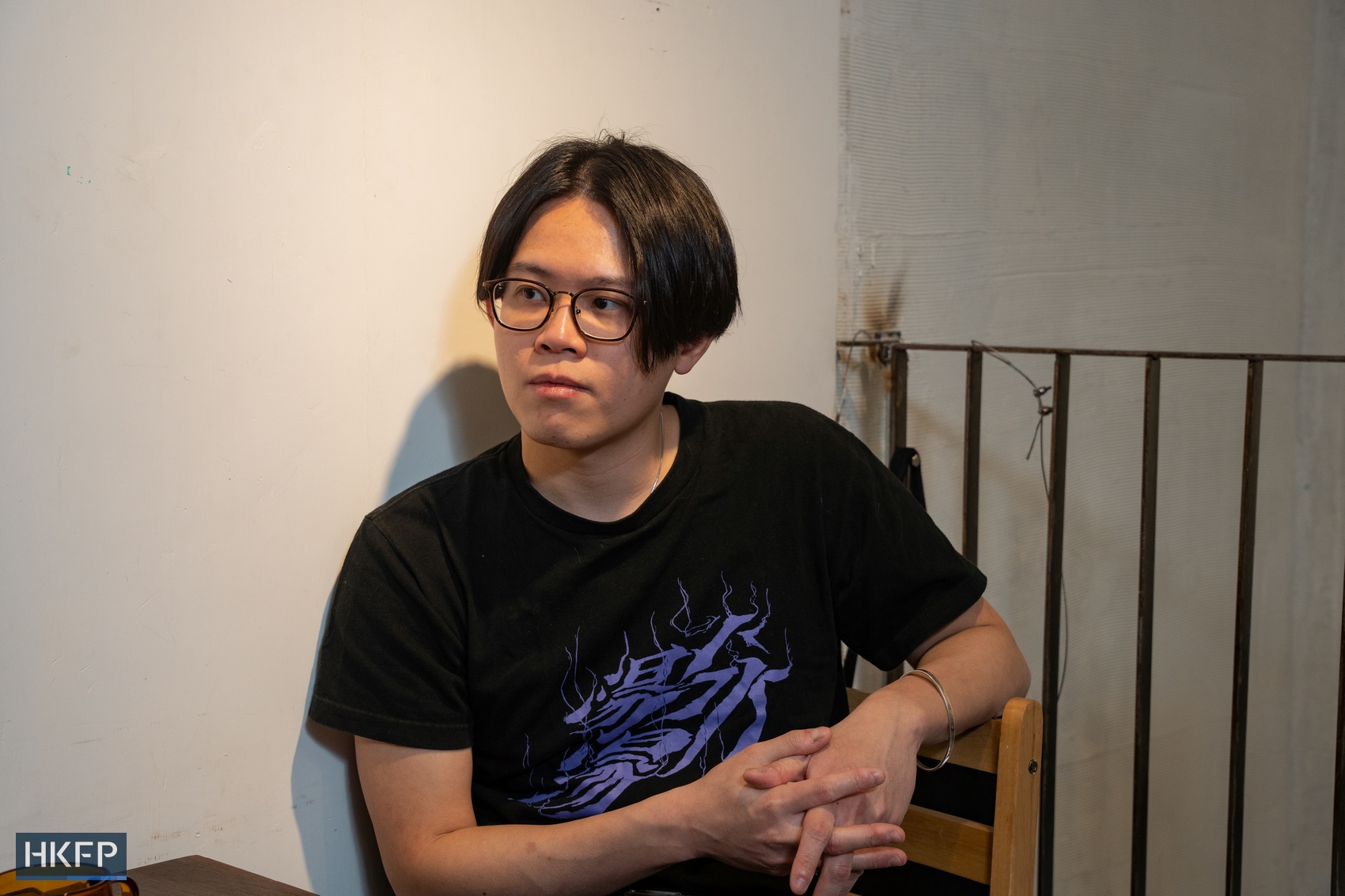
The trio decided to pool their experience, knowledge and networks to form UN.TOMORROW, a loose collective that seeks to create momentum, to thrust the indie scene into uncharted territory. “Tomorrow never knows; it is being,” they wrote in a statement.
Joined by Medius Chung of indie enthusiasts’ group Zenegeist, the collective is busy working on its first project: a two-day festival in March that will bring together 10 active acts – including An Id Signal, David Boring, and Wellsaid. The line-up, Ah Lai says, has been curated to showcase the unique and iconic sounds of the city’s alternative music scene.
“The vinyl you see, the music you hear, how does it actually come to your senses? There’s a path, a journey in-the-making that the audience wouldn’t know about.”
Lok, wellsaid
More releases are planned. When HKFP visited the group in January, they were on their laptops, trying to make a deal with record stores in Taiwan and Hong Kong for a live album by the critically acclaimed singer-songwriter Wong Hin-yan, soon to be released under the tag of UN.TOMORROW. Jason is excited that the collective may become a record label and, in time, build a catalogue of its favourite music. But it is still a long shot, he says.
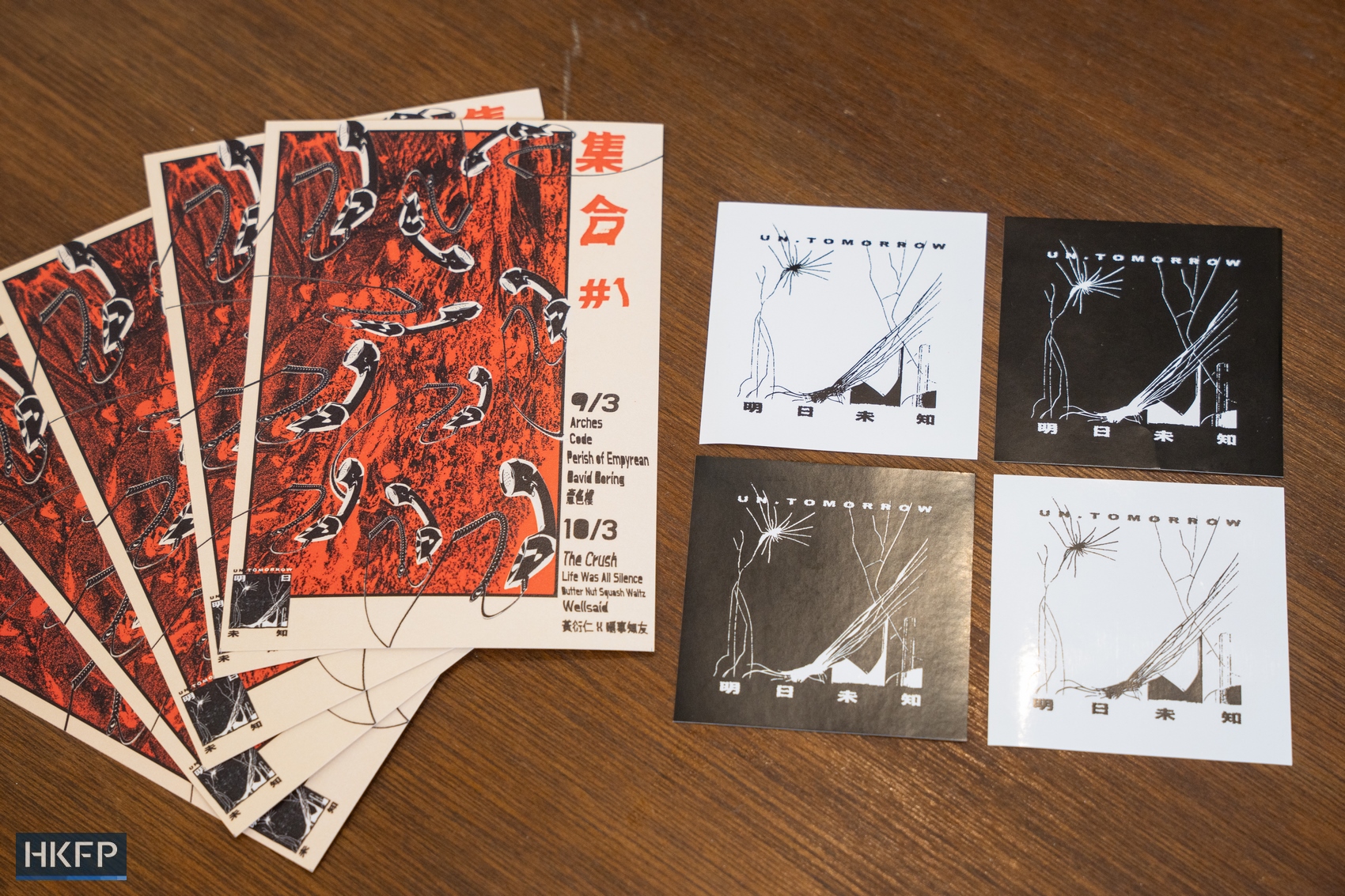
Subscribe to HKFP's twice-weekly newsletter for a concise round-up of local news and our best coverage. Unsubscribe at any time - we will not pass on your data to third parties.
Processing… Success! You're on the list. Whoops! There was an error and we couldn't process your subscription. Please reload the page and try again.“We want to encourage everyone to continue,” Lok says. “The meaning behind UN.TOMORROW is that we don’t want ourselves to be fatalist, to end after just a shot… We want to explore the potential of alternative music, to see what it could become.”
In this collective pursuit, they seek to bring together musicians and fans in the city so that meaningful connections can be made, and, in doing so, leave an imprint of alternative music’s presence on the city’s music history.
The idea emerged from the group’s gatherings during Covid-19, when social distancing measures made it hard to stage live performances.
During that time, Lok continued what he had done for years: making music under mostly his own steam. He wrote songs, recorded them with Wellsaid, and brought them before an audience at a release party when the policy allowed. But the support of insiders was essential.
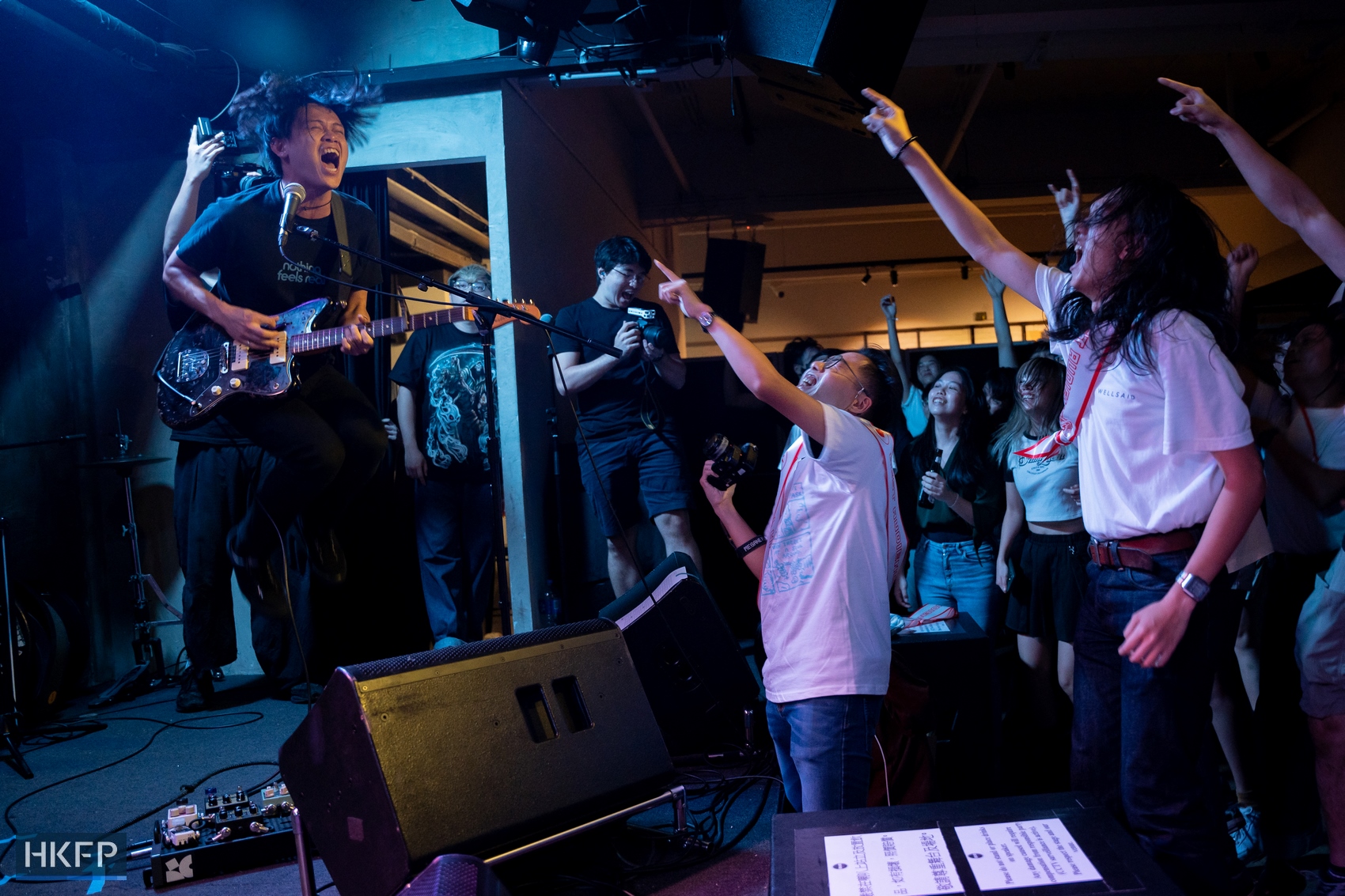
“Before the pandemic… we were mostly minding our own business, because we were competing as bands,” he says. “But it was much harder to make a show, whether openly or underground, during the outbreak… you had to involve other people to share the risks, but in that process, people also came to understand each other.”
Competition is not a bad thing, Ah Lai says, as it pushes people to grow and the indie scene to progress: “A vibrant scene is always made up of different people with different aesthetics, competing and cooperating with each other.”
But Ah Lai, who has been making music with An Id Signal since 2006, also feels that the city’s indie scene could benefit from being more tightly-knit – becoming a trusted circle where musicians can seek solace and advice whenever they encounter hardships. “In fact, we are always ignorant about how to run a band, with the time evolving so quickly,” he says.
“We have been pretty much on our own for a long time, perhaps we lack an intimate music circle to connect us, where we can communicate our experiences as bands.”
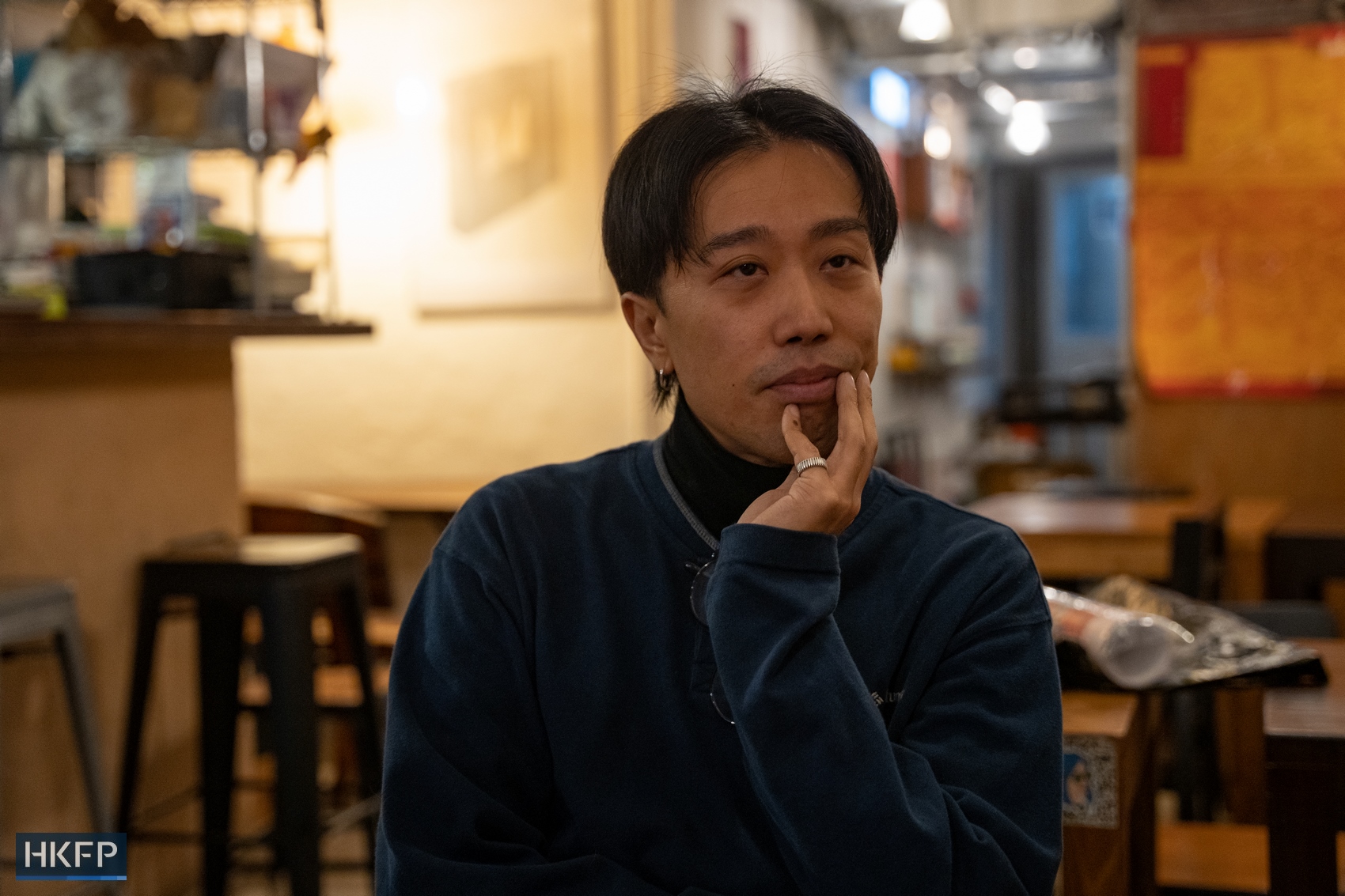
He takes inspiration from indie musicians overseas, who are seeing the merits of convergence. “My friends in Taiwan and Japan… are bringing the ‘do-it-yourself’ spirit to the next level, that is ‘do-it-together.’ I think we, too, are entering this phase,” Ah Lai says. “Take our three bands as an example: we may carry on with our projects separately, but if we do them together, it will be a different story.”
“At the very least, our shows won’t collide,” he adds. “We are now synchronising, we are giving the entire scene a schedule [of events].”
Medius, whose Zenegeist group has been putting on indie music shows for over eight years, is well aware of the value of getting events in order. When multiple shows happen in different locations on the same night, he says, it inevitably scatters the fans – already few in number compared with mainstream listeners.
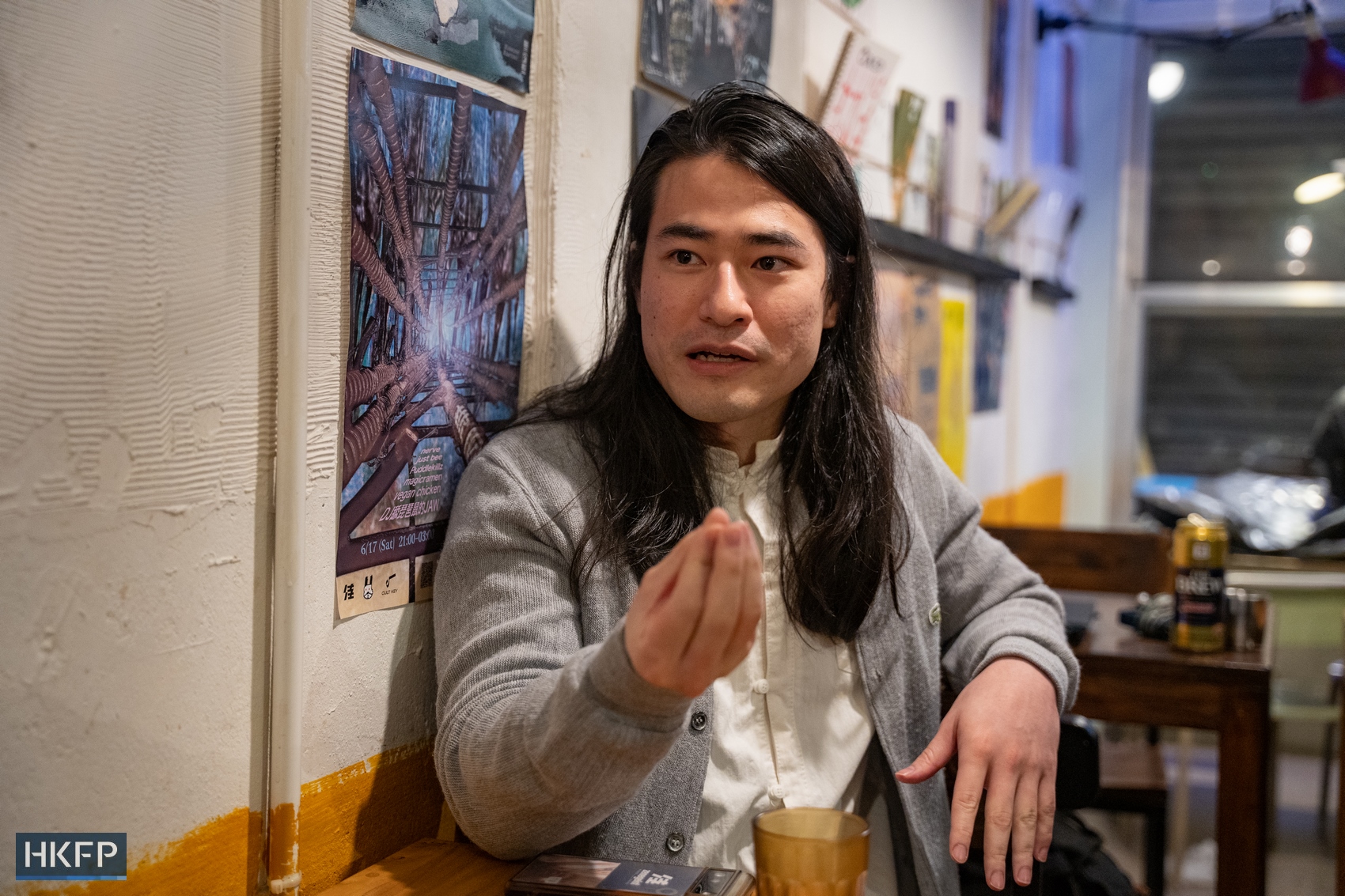
It will also lack the synergies of an ensemble event at which fans can discover new bands after listening to their favourites. “This is an opportunity to attract the attention of those who are less familiar with indie music,” he adds.
The point is illustrated in the roster for the upcoming March festival, which features a variety of bands that cut across genres. Jason’s David Boring leans towards electronic noise, sharing a sense of affinity with the dissonant, post-hardcore sounds by Ah Lai’s An Id Signal. Lok’s Wellsaid makes slightly brighter music rooted in the emo genre. In succession, they will perform on the same stage with seven other bands with distinctive sounds, styles, and performances.
“Hong Kong is small, so is the indie scene,” Lok says. “Musicians from different circles can easily step into others’ territories… We are all friends and we could make a combo show together. There’s a strange proximity that is unique to Hong Kong.”
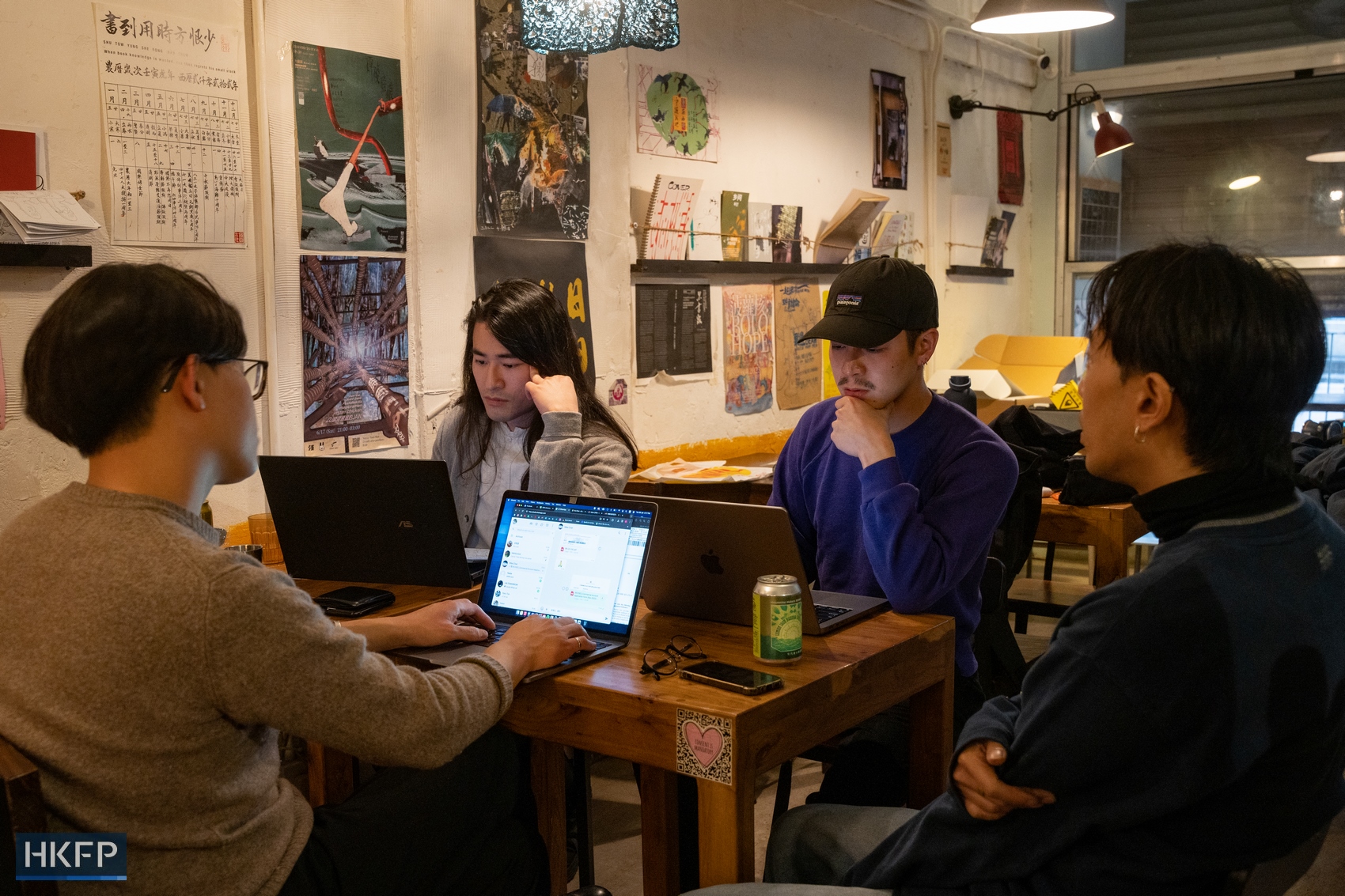
What truly binds them is the attitude of independence. It leads these musicians to keep a distance from what Lok calls “the institutionalised,” that is, to rely on public money or commercial models in making music.
Instead, they self-finance their production, lug their own instruments around, and reach out to friends when they need a hand, whether for album art designs or concert photography. It is a clumsy method, Ah Lai notes, but it gives them maximum control over their output.
And this kindred spirit draws people together, including Medius, who considers himself more of a supportive figure in this project. “I think we want to build a musicians-oriented community,” he says. “We are not saying our approach is the only way for indie musicians, but we encourage things to happen in this spirit.”
For Jason, an equal amount of attention is placed on producing Wong Hin-yan’s live album, which emerged from a throwaway comment he made the artist.
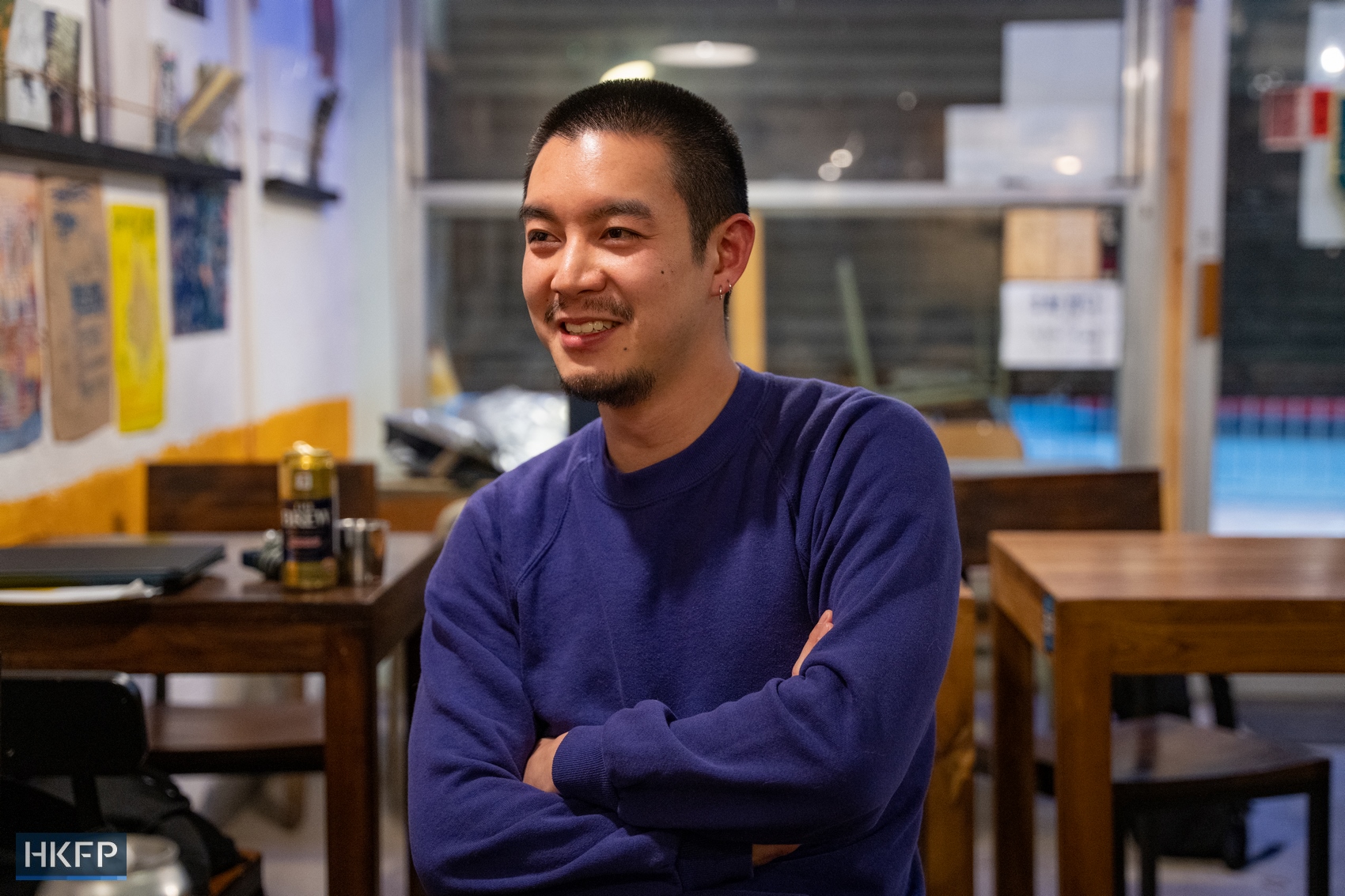
Wong is a poet, a singer-songwriter, and a composer whose score won him a Golden Horse Award – the most prestigious prize for Chinese-language films – in 2022. But he has also played in smaller, underground venues, like “A Night to Call, Tales to Tell”, a jazz-infused live performance that happened in a factory building in San Po Kong last year. As an audience member, Jason was mesmerised.
After Wong’s performance, Jason said something he had often said to artists he liked: “The show was great! I will be your producer if you have the recording.”
But unlike other times Jason had said that, Wong went back to Jason two months later with the recording. Jason not only felt obliged to make it into a record, it was also a dream come true.
“When I am watching a show, sometimes I feel a sudden sense of detachment,” he says. “There are moments that hit me so deeply. I feel like I should not be just a witness, I want to bring them to the world, to seal them in a time capsule, to remember them.”
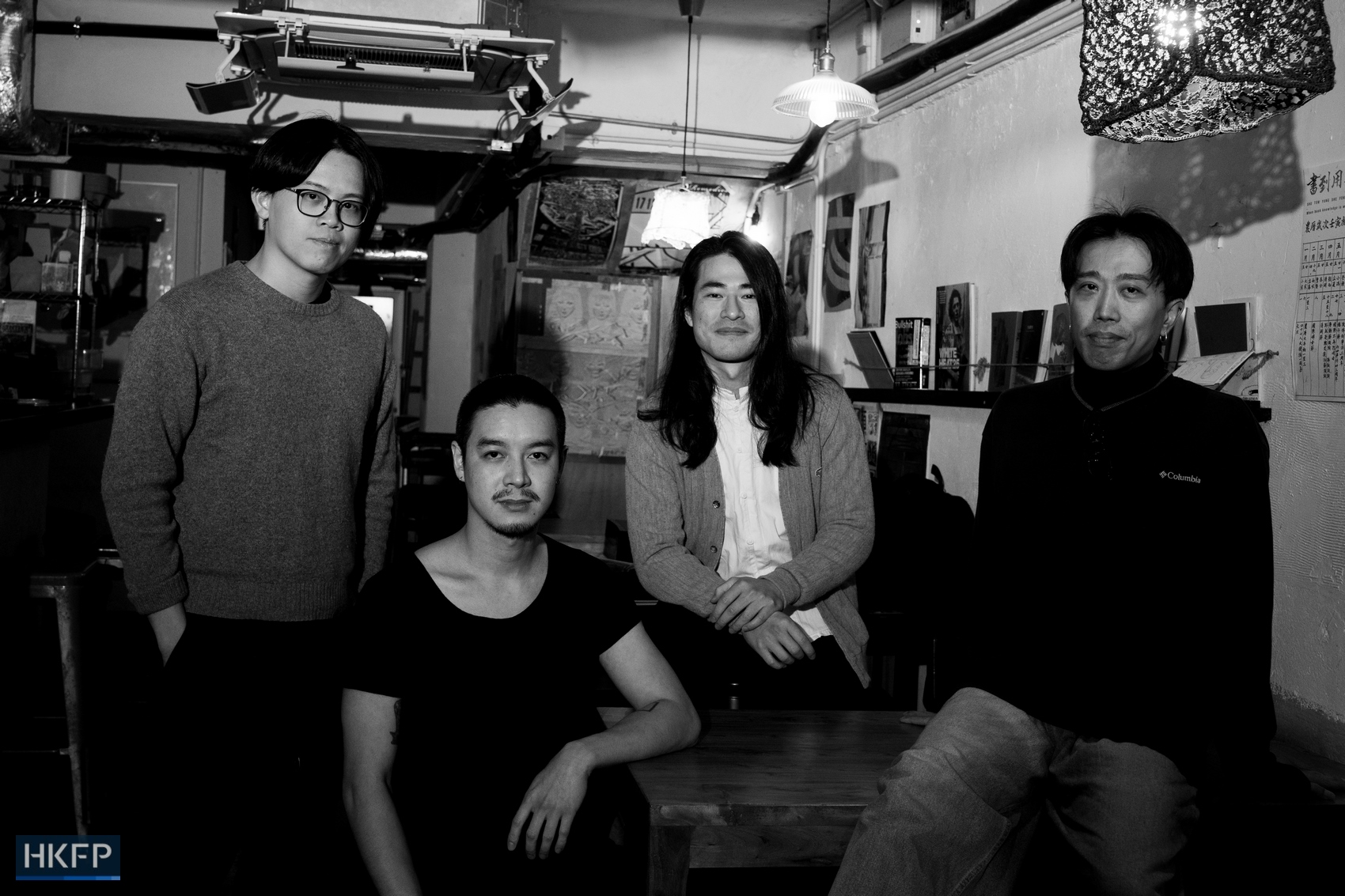
Now, “A Night to Call, Tales to Tell”has been materialised on a double LP album. Jason and UN.TOMORROW reached out to a studio in Taiwan to master the tracks and a factory in the UK to press the vinyl. They also enlisted a translator, so that Wong’s work could be exposed to non-Chinese speaking audiences.
The investment is worthwhile partly because they enjoyed Wong’s music, but it is also compelled by a sense of regret – and ambition.
“There are moments that hit me so deeply… I want to bring them to the world, to seal them in a time capsule, to remember them.”
Jason Cheung, David Boring
“There were some bands that existed – like Ponyboy – but didn’t make a record. It was a real historical shame,” Lok says. “But you’ve missed the shot already. I think, if there were a way to support those bands in their prime to make records, Hong Kong would truly have a rich catalogue [of indie music].”
Having such a catalogue is helpful for future audiences to learn about what happened before them, Ah Lai says, but it also required time.
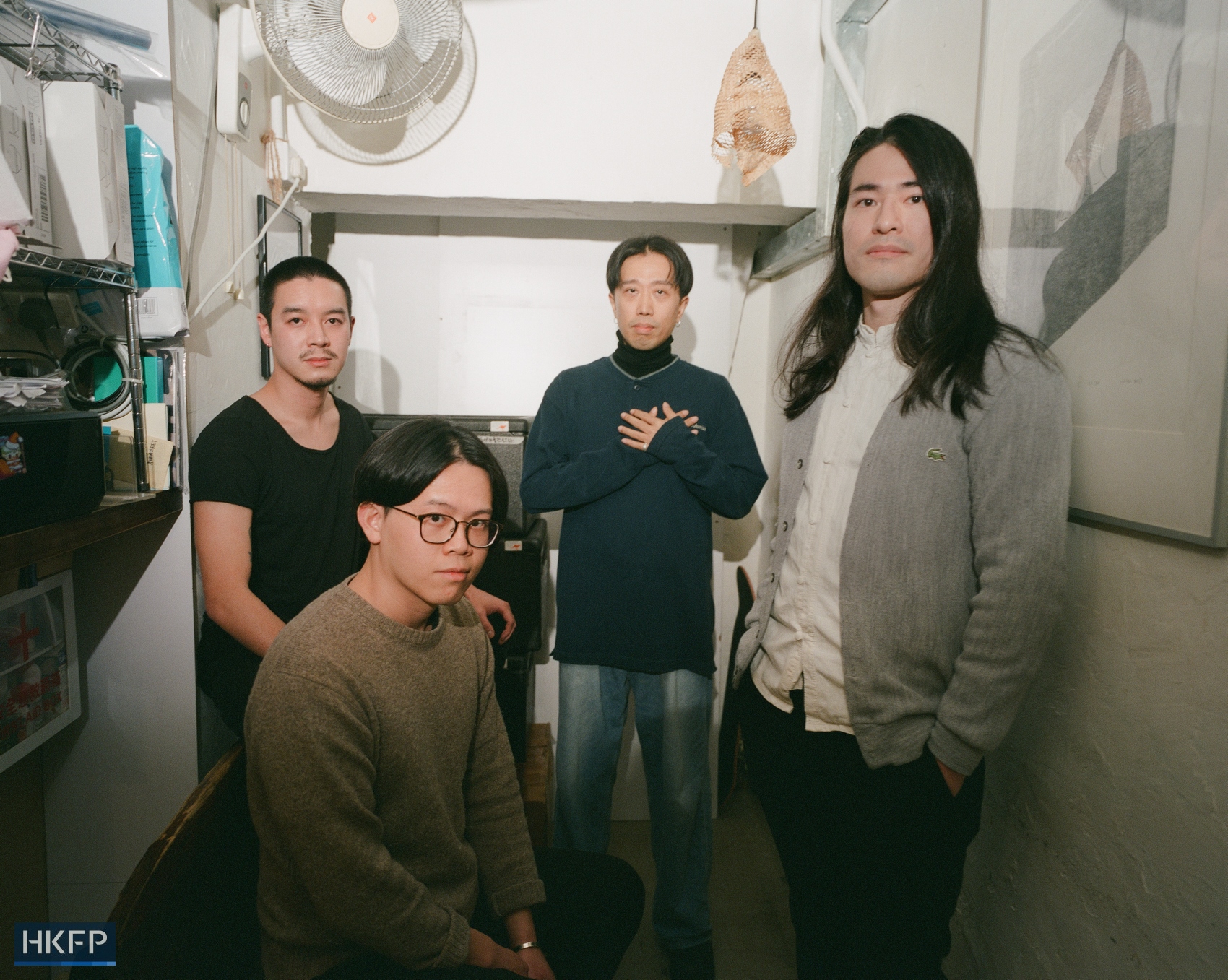
A case in point is the independent label Harbour Records, Ah Lai notes, which celebrated its 20th anniversary in January with a two-night party. Founded by a group of friends who enjoyed making music together, including the late Kwan King-chung, who is considered to be one of the most influential figures in the scene, Harbour Records has since released over 36 albums.
“You can see their timeline, with My Little Airport, False Alarm, etc. You can see their period,” Ah Lai says. “If we take the time [with UN.TOMORROW], this period will also become history.”
“Now, things in Hong Kong could easily disband and be banned, it takes a blink of an eye before things disappear. But, what if we can carry on for five years? That would be an archive in itself,” the musician says.
“When a band puts out a record, it naturally represents the music that happened in that time in history. We don’t seek to represent the entire indie scene – we are just a part of it, a part of Hong Kong’s music history – but we will put together what we have.”